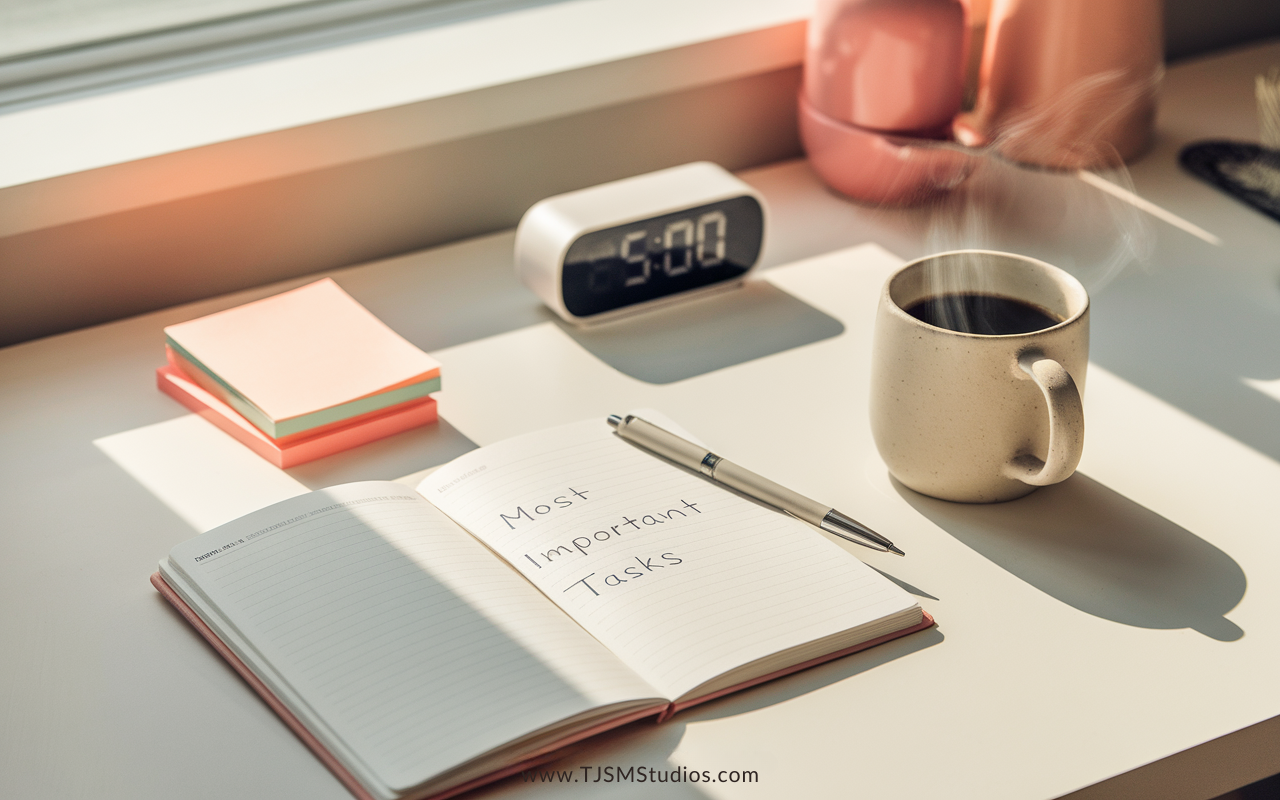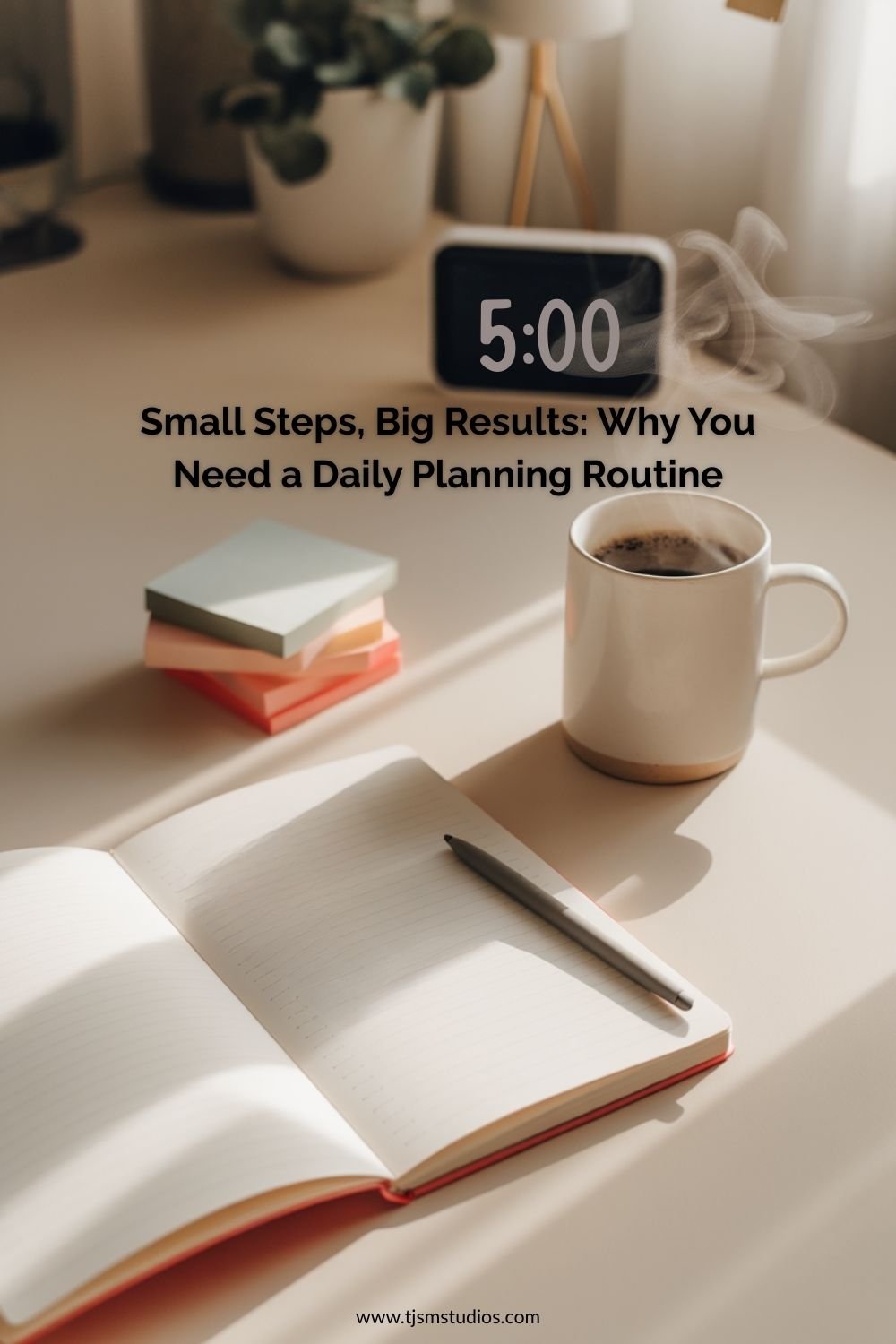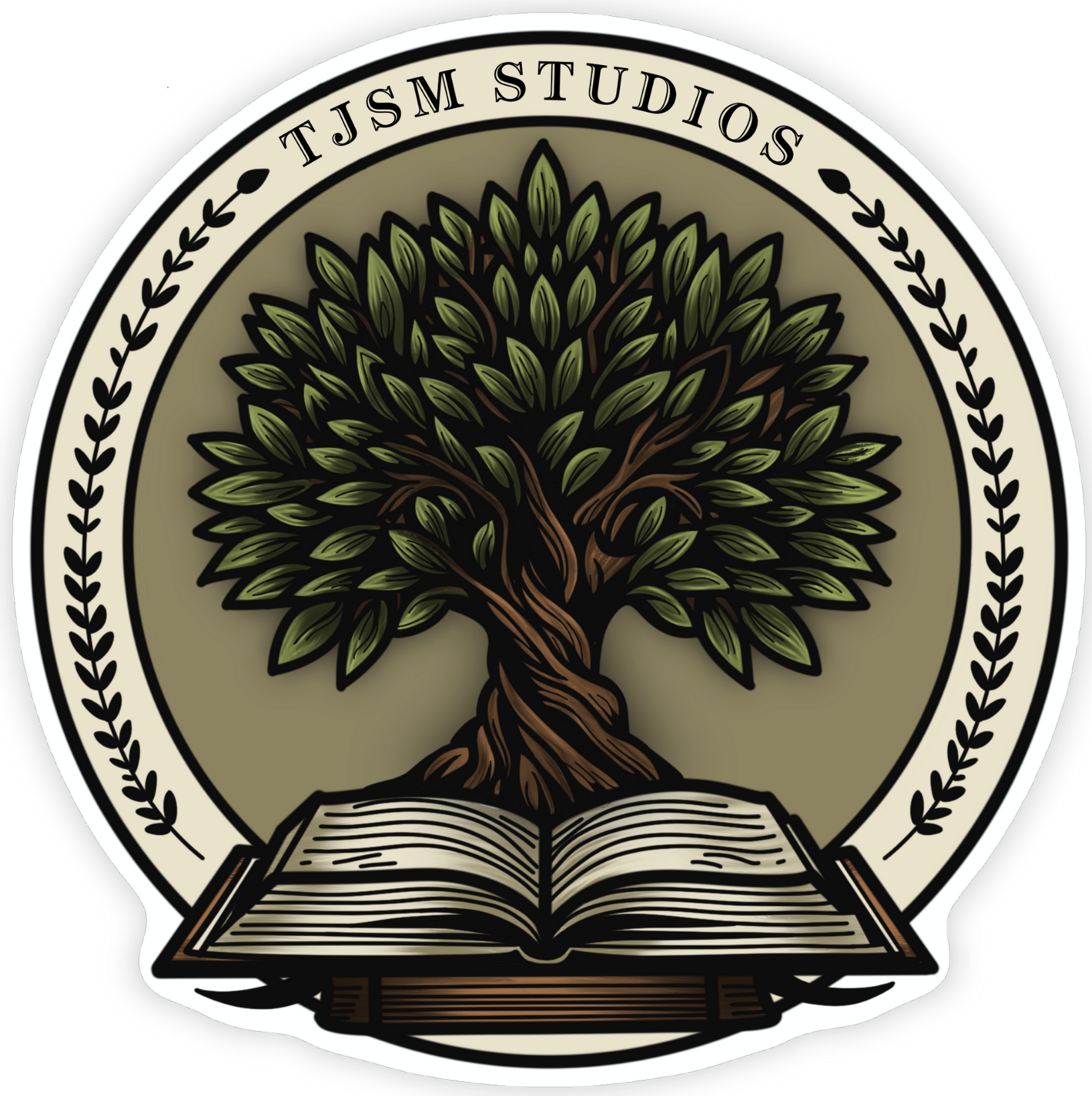This post may contain affiliate links, meaning I may earn a small commission at no extra cost to you.

We’ve all been there—the endless to-do list, sticky notes multiplying like rabbits, and the sinking feeling that no matter how hard we work, the day somehow slips away. I used to think I just needed to try harder or sleep less. Turns out, I just needed a daily planning habit.
If you’re feeling scattered, exhausted, or stuck in constant reaction mode, this post is for you. Today, we’ll explore the benefits of daily planning, how to build the habit, and the best daily planning tools to make your routine effortless.
Why Daily Planning Matters
The Psychology of Planning and Productivity
Planning is more than just writing tasks down. It’s a powerful way to regain control over your time and mental energy. Research shows that people who plan their day experience reduced decision fatigue, improved focus, and increased productivity.
A study published in Behavioral Science & Policy found that people who set clear implementation intentions (a fancy way of saying “plan what you’ll do and when”) were far more likely to achieve their goals.
The Key Benefits of Daily Planning
- Clarity and Focus: You know exactly what matters most.
- Reduced Anxiety: A structured plan calms the mental chaos.
- Better Time Management: You spend less time figuring out what to do next.
- Improved Mental Well-Being: You feel accomplished and grounded.
Building the Daily Planning Habit
Start Small
You don’t need an elaborate system to start. Set aside just 5 minutes every morning or evening. The consistency matters more than complexity.
Habit-Stack for Success
Link your planning to an existing habit. For example:
- Plan your day while sipping your morning coffee.
- Review tomorrow’s plan while brushing your teeth at night.
Progress Over Perfection
Your plan won’t always go as expected—and that’s OK. The goal is progress, not perfection. Track your habit using a simple habit tracker (download our free template to get started).
Real-Life Inspiration
Last year, I worked with a coaching client, Sam, who felt constantly overwhelmed. By adopting a daily planning routine for beginners (5 minutes with a simple notebook), Sam reduced stress, improved focus, and finally made progress on personal goals that had stalled for years.
Tools to Supercharge Your Daily Planning
Digital Solutions to Explore
- Todoist: Simple, intuitive task manager. Great for beginners.
- Notion: All-in-one workspace perfect for customized planning.
- Trello: Visual boards ideal for project-based planning.
- TickTick: Combines to-do lists with calendar views.
Choosing the Right Tool
| Tool | Pros | Cons |
| Todoist | Clean interface, reminders | Limited customization |
| Notion | Highly flexible, collaborative | Steeper learning curve |
| Trello | Easy visual workflow | Can get cluttered |
| TickTick | Great for detailed planning | Less robust integrations |
A Sample Routine Using Notion
- Open your Daily Planner template.
- List 3 MITs (Most Important Tasks).
- Schedule tasks using time-blocking.
- Review at the end of the day and adjust as needed.
Daily Planning in Action
An Ideal Daily Planning Routine
- Morning:
- Spend 5 minutes identifying your top 3 priorities.
- Time-block your calendar.
- Throughout the Day:
- Check tasks off as you complete them.
- Adjust for unexpected changes.
- Evening:
- Reflect: What went well? What needs improvement?
- Prepare tomorrow’s plan.
Time-Blocking and Prioritization
Incorporate simple frameworks:
- Eisenhower Matrix: Urgent vs. important.
- MITs: Identify your 3 Most Important Tasks for the day.
Final Thoughts
The magic of a small daily habit for productivity lies in its consistency. Planning your day doesn’t eliminate challenges, but it gives you a steady foundation to meet them with intention.
What are your biggest daily planning challenges? Share them in the comments below!
Start your daily planning journey today and see the difference a simple 5-minute habit can make.

10 Guided Journaling / Planning Prompts
- What’s the first small step I can take today?
- What’s my biggest priority right now?
- Which tasks today can I delegate or postpone?
- How can I make my workday feel less chaotic?
- What habit do I want to build this week?
- Where did I feel most focused today?
- How did I handle unexpected changes?
- What can I do differently tomorrow?
- What’s one win I’m proud of today?
- How does my daily planning habit make me feel?
Suggested AI Prompt for Readers
You can use this prompt in ChatGPT or any AI assistant to help you take action on this blog topic.
“Guide me through creating a simple, step-by-step daily planning routine that I can realistically stick to, including suggestions for tools and habit-tracking methods.”

